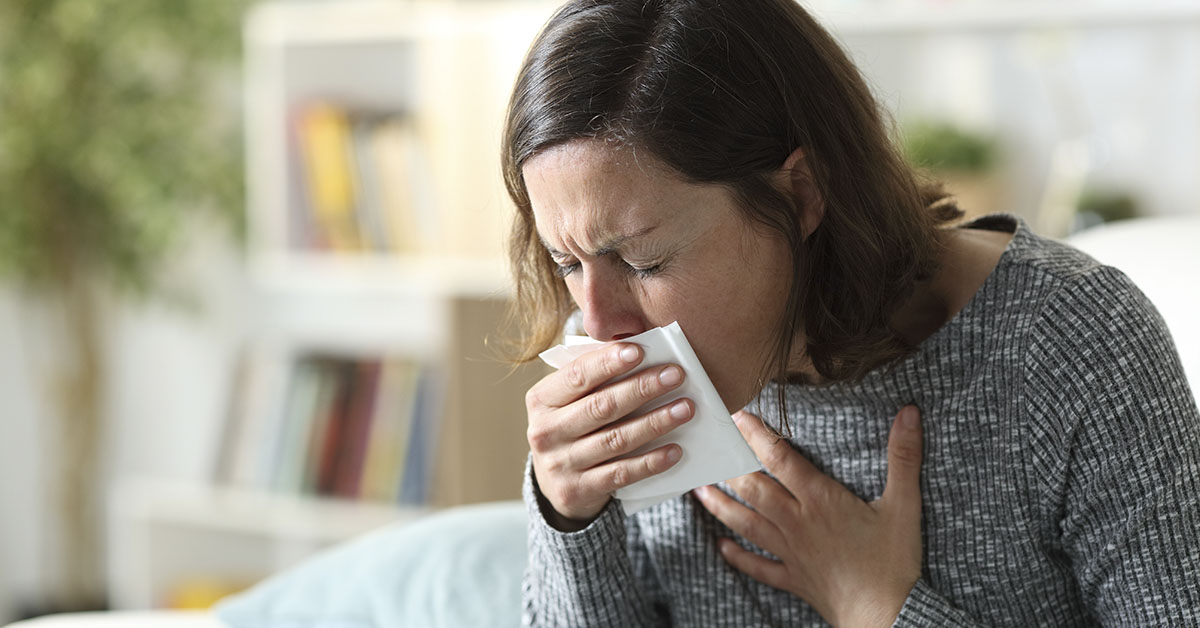Colds, sneezing, and coughing are never fun. Probably one of the worst parts about getting a cold is the mucus that seems to linger in the throat and chest for seemingly forever afterward. While this usually does eventually clear, it can really disrupt your life. It can lead to persistent coughing, as well as make breathing difficult, particularly during exercise. This generally makes life just less fun. The question is, what do we do about it? Thankfully, there are several things you can do at home to help clear mucus and breathe easier.
Ways To Get Rid Of Phlegm And Mucus In Chest And Throat at Home
Mucus is a thick and sticky substance produced by the lining of our respiratory system, including the nose, throat, and lungs. It serves an important purpose in our bodies by trapping dust, bacteria, and other foreign particles, helping to keep our airways clear and moist. (1)
However, excessive mucus production or a buildup of phlegm in the chest and throat can be quite bothersome. It can lead to difficulty in breathing, a persistent cough, throat irritation, and a feeling of congestion. Some of the common causes of mucus buildup include common colds, allergies, respiratory infections, smoking, and inhaling irritants.
Ways to Alleviate Phlegm and Mucus at Home
Before jumping to over the counter drugs and pharmaceuticals to clear your mucus, try these natural tricks first. They are safe, easy to do, and you can do them right at home.
1. Keep Hydrated

Drinking plenty of fluids throughout the day helps to thin the mucus, making it easier to expel. Water, herbal teas, warm broths, and soups are excellent choices.
2. Gargle with Salt Water
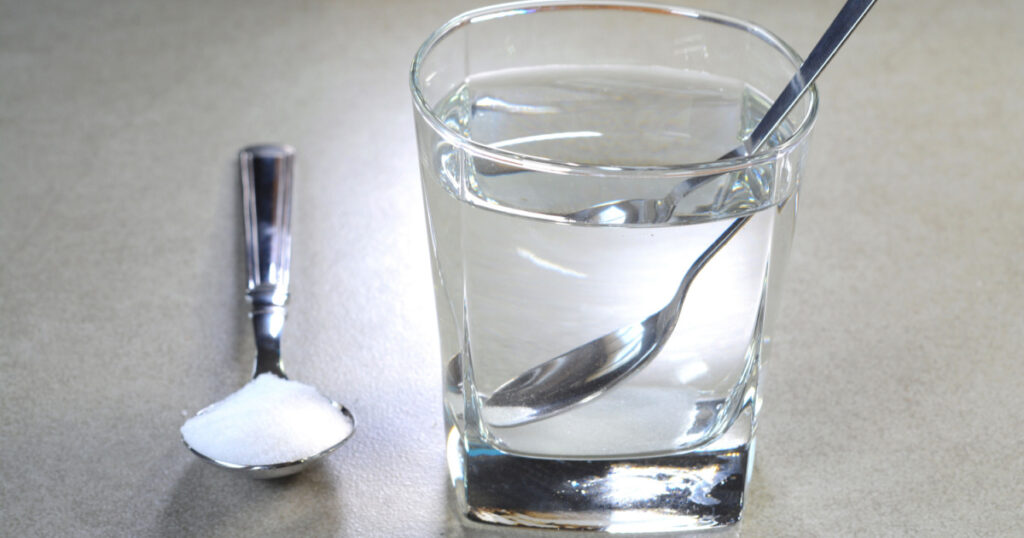
- Mix half a teaspoon of salt in a glass of warm water and gargle with it several times a day. This helps to reduce mucus in the throat and soothe irritation. (2) When gargling salt water, follow these steps:
- Mix together a cup of water with 1/2 to 3/4 teaspoon of salt. Warm water works best, because it dissolves the salt more quickly. It’s also a good idea to use filtered or bottled water that doesn’t contain irritating chlorine.
- Sip a bit of the mixture and tilt your head back slightly.
- Let the mixture wash into your throat without drinking it.
- Gently blow air up from your lungs to gargle for 30 to 60 seconds, and then spit out the water.
- Repeat as needed.
3. Steam Inhalation

Inhaling steam helps to moisten and loosen the mucus, making it easier to cough up. You can do this by leaning over a bowl of hot water with a towel over your head or by using a steam inhaler.
4. Warm Compress
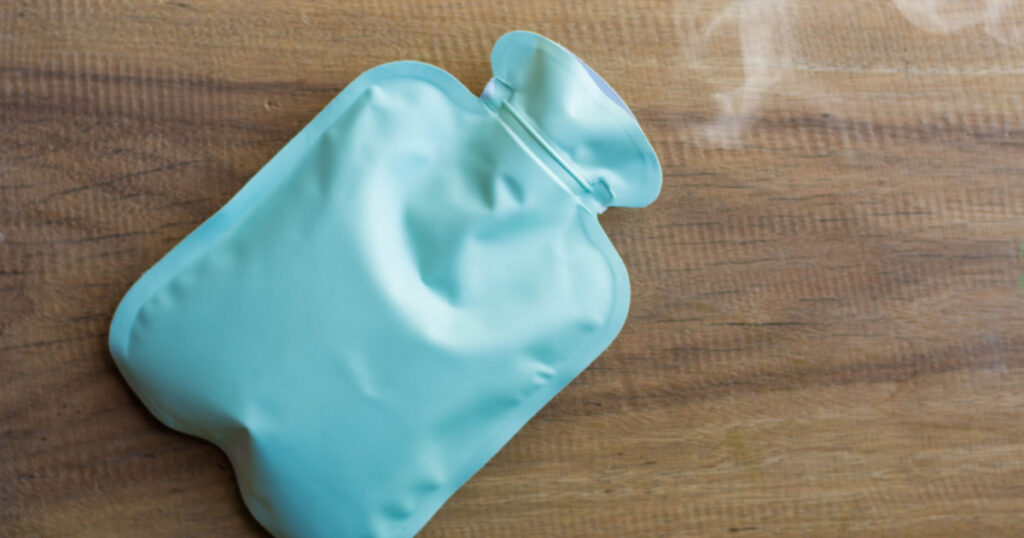
Applying a warm compress to your chest or throat can help to relieve congestion and loosen mucus. Simply warm a clean towel with hot water, wring out excess water, and apply it to the affected area.
5. Honey and Lemon

Mix a tablespoon of honey with warm water or herbal tea and squeeze some fresh lemon juice into it. The honey helps soothe the throat while the lemon helps break up mucus. Ginger, garlic, and spicy peppers like cayenne also can help clear mucus and get phlegm moving. (3)
6. Use a Humidifier

Adding moisture to the air with a humidifier can help to loosen mucus in the chest and throat. Make sure to clean the humidifier regularly to prevent the growth of bacteria.
7. Nasal Irrigation
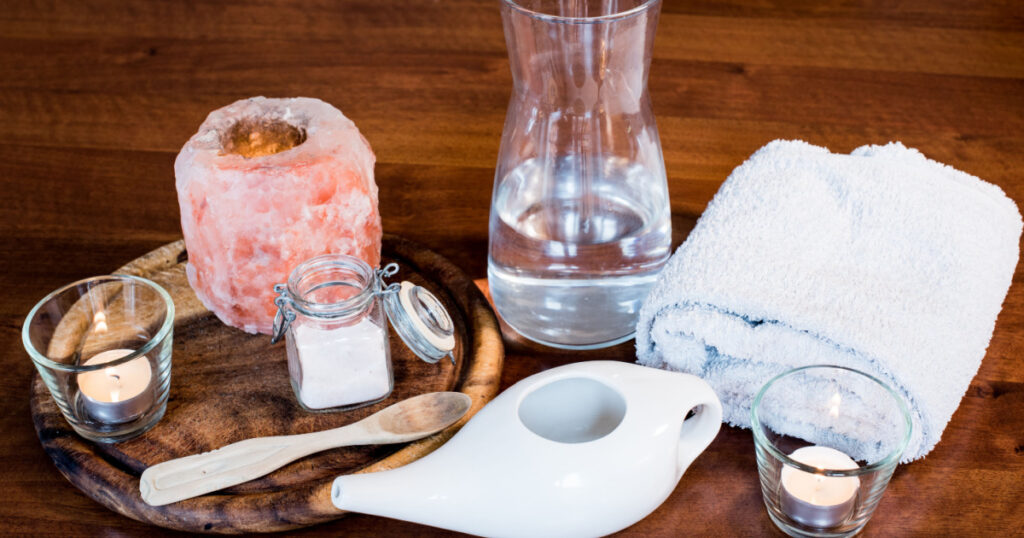
Using a saline solution or a neti pot to flush the nasal passages can help to remove excess mucus and alleviate congestion.
8. Avoid Irritants
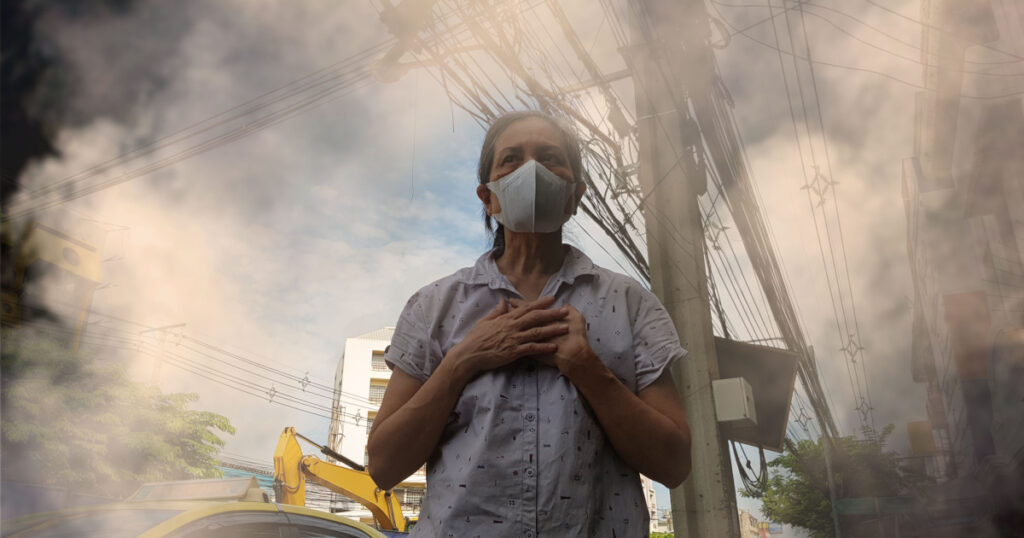
Stay away from irritants like cigarette smoke, air pollution, and strong chemical odors, as they can worsen mucus production and congestion.
Things to Avoid
To effectively alleviate mucus in the chest and throat, it’s important to be aware of certain “don’ts” that can make the situation worse:
- Avoid smoking and exposure to secondhand smoke, as it can increase mucus production and damage the respiratory system.
- Avoid consuming dairy products, as they can make mucus thicker and harder to expel.
- Avoid excessive consumption of sugary foods and drinks, as they can contribute to mucus production and inflammation.
- Avoid decongestant sprays and nasal drops for extended periods without medical supervision, as they can cause rebound congestion.
- Avoid excessive use of cough suppressants, as coughing is the body’s natural way of clearing mucus and phlegm from the airways.
Remember, if your symptoms persist or worsen, it is always advisable to consult a healthcare professional for a proper diagnosis and treatment plan.
By following these home remedies and avoiding certain triggers, you can effectively manage and alleviate phlegm and mucus in your chest and throat, promoting better respiratory health and overall well-being.
Sources
- “19 home remedies for phlegm and mucus.” Medical News Today. Jennifer Berry. December 8, 2022.
- “A pilot, open labelled, randomised controlled trial of hypertonic saline nasal irrigation and gargling for the common cold.” NCBI. Sandeep Ramalingam, et al. 2019.
- “Worldwide Preferences for Natural Remedies for“Nervousness” and Common Colds. Hapres. Mary V. Seeman, et al.
